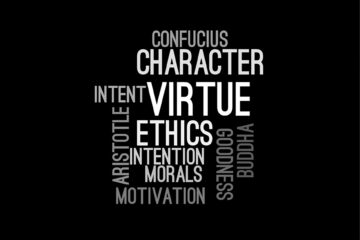![]()
Introduction:
The word jurisprudence derives from the Latin term juris prudentia, which means “the study, knowledge, or science of law.” Jurisprudence is the theoretical study of law. Jurisprudence explains the rationale behind law, it seeks to analyse, explain, classify, and criticize entire bodies of law. Jurisprudence also studies the relationship between law and other branches of knowledge such as literature, economics, religion, and the social sciences. It is the answer to the question of “What is law” and “why is law needed”.[1] There are three types of jurisprudence: analytical, social, and theoretical. The analytical branch specifies axioms, defines words, and prescribes ways for seeing the legal order as a logical, internally consistent system. The sociological branch of law studies the actual impacts of law in society as well as the impact of social phenomena on substantive and procedural aspects of law. The theoretical branch assesses and critiques legislation in light of the objectives or goals that have been proposed for it.[2]
Ownership under Jurisprudence
John Austin defines ownership as – “Ownership means a right which avails against everyone who is subject to the law conferring the right to put thing to user of indefinite nature. And a right indefinite in point of user, unrestricted in point of disposition and unlimited in point of duration when it comes to full ownership.”[3] Ownership means having a legal right over something. Ownership is derived from the Roman term “Dominium” which means absolute right to a thing. When one examines the concept of ownership, various features emerge that reveal the nature or characteristics of ownership, such as usage, enjoyment, and disposition. Ownership contains the following elements:
- Indefinite in Point of User: The user is free to utilise the thing he owns in whatever way he wants and is under no obligation to do so. It is up to the user to use it.
- Unrestricted At Point of Disposition: The owner has the option of transferring or disposing of the property via conveyance during his lifetime or by will after his death.
- Right to Possess: The owner has the right to possess the thing he owns, regardless of whether he actually has it or not; only the right to possess is material in nature.
- Right to Exhaust: If the nature of the thing that is possessed allows it to be exhausted, the owner has the right to do so at his will.
- Residuary Character: The owner may relinquish a number of rights in relation to the thing he owns. This does not absolve him of his ownership.
- Right to Destroy: An owner has the authority to destroy or alienate his property.[4]
Types of Acquiring Ownership
There are 2 types of acquiring ownership of a property. They are:
- Original ownership: It is possible to acquire ownership of something that does not have an owner. Such items are referred to be res nullius, and ownership can be acquired through possession.
- Derivative ownership: In this mode the owner acquires the ownership by purchasing from the original or previous owner. The acquisition of ownership is done strictly by lawful means.[5]
Types of Ownerships
Ownership consists of different types. These include:
- Corporeal and Incorporeal Ownership: The possession of material goods is referred to as corporeal ownership, whereas the ownership of a right is referred to as incorporeal ownership. Intangible property ownership is also known as incorporeal property ownership. Corporeal ownership comprises things like a house, table, automobile, and so on, whereas incorporeal ownership includes things like trademarks, copyright, and patents.
- Trust and Beneficial Ownership: Trust and Beneficial Ownership: The property possessed by two people who are required to use it for the benefit of the other is the subject-matter of such ownership. The trustee is the person who is responsible for such a duty, and his ownership is referred to as trust ownership. The beneficiary is the individual who will profit from the property, and his ownership is known as beneficial ownership. It’s merely an issue of form, not substance, when it comes to trust ownership. This implies that a trustee’s ownership of the property is merely nominal. By law, he is given someone else’s property fictitiously, obliging him to use it for the benefit of the genuine owner. For example, a property is given to A on trust for B then A is trustee and B is beneficiary. A has trust ownership, the legal owner in the eyes of law who is obligated to use the trust property for the benefit of B who has beneficial ownership.
- Legal and Equitable Ownership: Legal ownership refers to ownership that is recognised by a legal system’s norms, whereas equitable ownership refers to ownership that is recognised by equity rules. Legal ownership is a right in rem whereas equitable ownership is a right in personam since equity acts are in personam. A person may be the legal owner of a thing, and another may be the equitable owner of the same thing at the same time. For example, A assigned a debt to B. A is the legal owner and B becomes an equitable owner.
- Vested and Contingent Ownership: The term “vested ownership” refers to a situation in which the owner’s title is already perfect. Ownership is absolute in this case. In a gift deed, for example, the donee (the person to whom the gift is given) cannot take possession of the gift property, but he has a vested interest in it until the donor and his wife die. The donee can, however, transfer the property after the donor’s death. Contingent ownership denotes that ownership is conditional rather than absolute. Ownership is flawed and only becomes absolute and complete when certain conditions are met. For example, A may leave his property to B, who will then pass it on to C upon B’s death. C’s ownership is conditional, as he will only receive the property after B’s death.
- Sole Ownership and Co-ownership: Sole ownership means that just one person has the entire and sole right to a property, and no one else has any claim to it. When more than one individual possesses an undivided and vested right in all of them at the same time, this is referred to as co-ownership. The parties are co-owners of the same property, not different owners.
- Absolute and Limited Ownership: Absolute ownership indicates that no one else has any claim to the property except the owner, who has full rights. However, there may be legal or contractual constraints on how the property is used. Limited ownership entails restrictions on the property’s use, duration, and disposal rights.[6][7]
Possession under Jurisprudence
Though basic and necessary in human life, the concept of possession is difficult to describe. Because possession is both a legal and a factual notion, there is no set or precise definition. In the case Superintendent Remembrancer Legal Affairs vs Anil Kumar[8], the Supreme Court ruled that it is difficult to come up with a totally rational and precise definition of Possession that is uniformly applicable to all situations under all statutes. Hence, different scholars have defined possession in many ways.
Salmond defines Possession as, “possession is the continuing exercise of a claim to the Exclusive use of an object.” Sir Frederick Pollock defines Possession as, “In common speech a man is said to possess to be in possession of anything of which he has the apparent control from the use of which he has apparent power for excluding others.” Holmes defines Possession as, “To gain Possession a man must stand in a certain physical relation to the object and to the rest of the world and must have certain intent.” Basically, possession is the control over a material for a limited time given by the owner. For example, if A gives his car to his driver to drive, the driver while driving will have the possession of the car but ownership is with A only.
Types of Possessions
There are 2 types of possessions:
- Possession in fact: Possession in fact refers to having physical control over something. It refers to a thing’s de facto possession. Physical custody of an item does not have to be continuous. Possession in fact can be established simply by intending to exercise bodily control and exclude others from it. The person does not have to be in physical contact with the object all of the time.
- Possession in law: The possession of an item in the eyes of the law is referred to as possession in law. It refers to a thing’s de jure possession. In most cases, someone who has de facto possession of something also possesses de jure possession of it. However, this might not be the case in all situations. For example, if a driver has possession of his employer’s car, but the real owner according to law is his employer.
“The common element in both the types is the exclusive right of the possessor to exercise control, physical or otherwise, over a thing. Possession, in fact, is termed as possessio naturalis and possession in law is known as possessio civilis in Roman law.”[9]
Elements of Possession
Corpus of Possession (Corpus Possessions)
It refers to the possessor’s physical contact with an object in such a way that it conveys the possessor’s intention to utilise the object exclusively. It can be understood by looking at the two relationships involved: the possessor’s relationship with other people and the possessor’s relationship with the thing he owns.
Relation of possessor with other people: The person in possession of something should be given some level of security to ensure that he has exclusive use of it. When others have a legitimate fear of interfering with a person’s right to use something, that person is said to be in possession of that thing. The following sources can provide such security:
- Possessor’s physical strength
- Possessor’s physical presence
- Secrecy of possessor
- Protection afforded by the possession of other things
- Presence of animus domini
Relation of possessor to the things possessed: The possessor must have the physical strength to ensure that he has sole control over the property he owns. When someone puts money in a box and locks it, he is considered to be in possession of the money until the box or the key to the box is in his possession. The ownership of the key or the box suggests that the owner intends to use the money exclusively.[10] [11]
Animus Possidendi
The subjective aspect of possession is referred to as animus possidendi. While corpus refers to the physical power to keep exclusive use of the object that is held, animus possidendi relates to the possessor’s purpose to utilise the thing that he holds exclusively. It means the desire to own something. It is concerned with the subjective and mental desire to possess something. It is concerned with the subjective and mental aspects. It expresses a great desire to own something. The possessor must have a strong desire to possess something, and he must have an exclusive claim. Animus Possidendi does not have to be a claim or right, and it does not have to be a personal claim.[12] There are some important points w.r.t animus possidendi which must be kept in mind:
- According to R v. Hudson (1943), The desire to gain does not have to be good, and it could even be malicious. A criminal’s possession of stolen things is no less legitimate than the rightful owner’s possession of stolen goods.
- The object in the possession of the possessor must be his sole property. That is, he must intend for others to be unable to use and enjoy the item. However, the exclusion may not be absolute.
- It is not necessary for the animus to be accompanied with a claim or an intention to use the objects as owner. The pledgee has ownership of the pledged objects in the event of a promise, even if he only wants to retain them in custody as a security to ensure that his obligation is paid.
- It is not necessary for the possessor’s animus to be his or her own. For example, a servant, agent, trustee, or bailee does not keep goods in his possession for his own advantage, but rather for the benefit of another person.
- Even if a person is making a claim on behalf of someone else, he is still the rightful owner of the item.
- It’s possible that the animus isn’t specific, but rather broad. A guy who has caught fish in his net, for example, has possession of all of them despite not knowing their exact numbers. Similarly, a person is believed to own all of the books in his library, even if he is unaware of the existence of any of them.[13][14][15]
Difference between Ownership and Possession
Salmond has distinguished between ownership and possession stating that possession is in fact whereas ownership is in rights. Ownership is the guarantee of the law, possession is the guarantee of facts. Possession does not always include ownership, but ownership always does include possession. For example, a tenant has the possession of a house but does not have the legal ownership. On the other hand, the landlord has the legal rights of ownership and indirect possession of the house. Ownership is essentially a bundle of rights, all rights in rem. Possession is not a right, just prima facie evidence of ownership.
Conclusion
Ownership and possession are two important concepts of jurisprudence. The right of ownership is subjected to many statutory laws and regulations example, sale and transfer of land, land reforms act. Possession is comparatively simple and just a temporary control of a material object. There are many more concepts under jurisprudence which are important for the functioning of a legal system and jurisprudence is the backbone if law in any country.
References:
[1] Jurisprudence, Legal Information Institute, https://www.law.cornell.edu/wex/jurisprudence (last visited Aug 28, 2021).
[2] Jurisprudence, Encyclopedia Britannica (2018), https://www.britannica.com/science/jurisprudence (last visited Aug 28, 2021).
[3] LawBhoomi, Ownership in Jurisprudence: Meaning, KINDS, incidents and relevance in contemporary times LawBhoomi (2021), https://lawbhoomi.com/ownership-in-jurisprudence-meaning-kinds-incidents-and-relevance-in-contemporary-times/ (last visited Aug 29, 2021).
[4] Mayank Shekhar, Ownership: Definition, concept and kinds Legal Bites – Law And Beyond (2020), https://www.legalbites.in/ownership-definition-concept-and-kinds/ (last visited Aug 29, 2021).
[5] Mohd Aqib Aslam, Concepts of property, ownership and possession Legal Service India – Law, Lawyers and Legal Resources (2020), https://www.legalserviceindia.com/legal/article-2655-concepts-of-property-ownership-and-possession.html (last visited Aug 29, 2021).
[6] Supra Note 3
[7] Supra note 4
[8] Superintendent Remembrancer Legal Affairs v. Anil Kumar, AIR 1980 SC 52.
[9] Mayank Shekhar, Possession: Definition, concept & importance Legal Bites – Law And Beyond (2020), https://www.legalbites.in/possession-definition-concept-importance/ (last visited Aug 29, 2021).
[10] Id
[11] Sneha Mahawar, Concept of possession and ownership iPleaders (2021), https://blog.ipleaders.in/concept-possession-ownership/#Ownership (last visited Aug 29, 2021).
[12] Supra note 9
[13] Supra note 11
[14] Supra note 12
[15] Supra note 5



0 Comments